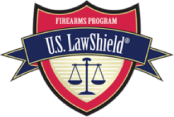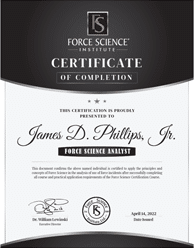
- May 27, 2022
- |
- Immunity,Stand Your Ground
Immunity from Prosecution
Self-Defense Immunity from Prosecution
Whenever the police respond to a scene where force or deadly force was used, there will be an investigation. In self-defense scenarios, the police will have to determine whether lawful self-defense was used. It is crucial to understand what to do After Using Deadly Force. If all goes well, how will the police investigation end? What will happen to you while the police are investigating? Can the police arrest you and can the state charge you with a crime after you’ve defended yourself? This article will explore immunity from criminal prosecution in self-defense cases under Florida law.
Justifiable Use or Threatened Use of Force
Florida’s immunity statute, § 776.032, Fla. Stat., provides immunity from criminal prosecution when “[a] person uses or threatens to use force as permitted in § 776.012, § 776.013, or 776.031 . . .” See our articles on Justifiable Use of Force and Justifiable Use of Deadly Force for more information on these statutes.
What is Immunity?
A person who lawfully uses force as permitted under Florida law is immune from all prosecution. This means that the person should not be arrested, detained, charged, or prosecuted. In Stand Your Ground cases where the person is not arrested, this statute is why. Under § 776.032(2), the police may not make an arrest in a case where someone has used force unless probable cause exists that the use of force was unlawful. However, the police are still free to investigate. This means that a even if a person is not arrested on the day force is used they may still be arrested and charged later if probable cause is found.
What if You Are Arrested Despite Having Immunity from Prosecution?
While Florida law makes it clear that those who use self-defense should not be arrested or charged, there have been countless cases where people who defend themselves and their families end up getting arrested and put in front of a judge. However, even if someone is arrested, they may still assert immunity from prosecution. Upon a motion by the defendant, the court will hold an immunity hearing. At this hearing, the State has the burden to show by clear and convincing evidence that the defendant is not entitled to immunity. This is not as high of a standard as “beyond a reasonable doubt,” but it is still a high burden for the State to meet. If the State fails to meet its burden, the charges will be dismissed and the defendant will be found immune from criminal prosecution. For further guidance or assistance, you may wish to contact a Florida immunity attorney.
Get in touch

"*" indicates required fields
Copyright © 2022-2025 The Firearm Firm All rights reserved.






















